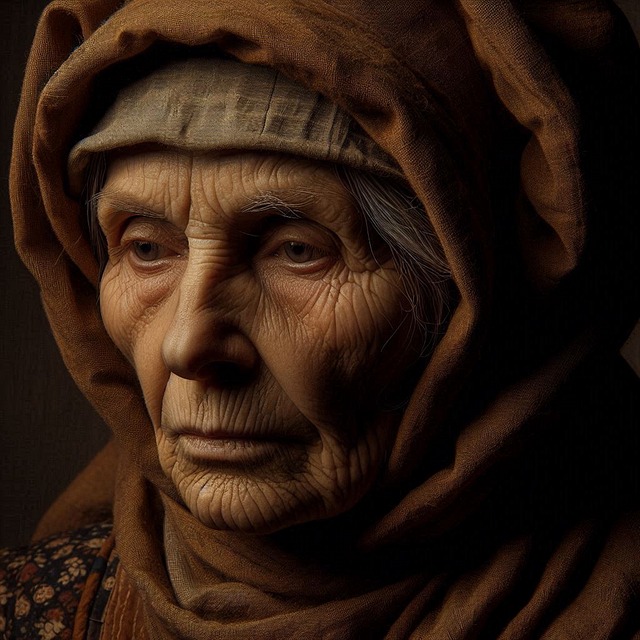Seniors should create a living will and appoint healthcare directives to ensure their end-of-life care wishes are honored. These legal documents outline medical treatment preferences and designate agents to make decisions if the senior is incapacitated. It's essential for the elderly to discuss their choices with both their chosen agents and healthcare providers, as these preferences may change over time. Regular updates to these documents are necessary to reflect new circumstances or medical advancements. By establishing a living will and healthcare directives, seniors can maintain control over their healthcare decisions, safeguarding their autonomy and personal choices. These documents also alleviate the emotional burden on family members by clearly stating the senior's end-of-life care wishes. Additionally, seniors should set up a Durable Power of Attorney for financial matters, entrusting a responsible agent to manage finances and property effectively. A Healthcare Proxy complements this by ensuring healthcare decisions align with the senior's preferences. Understanding state-specific laws governing living wills is crucial for their legal binding status. Elderly individuals should consult with elder law attorneys to navigate these complexities and draft a living will that reflects their unique circumstances, ensuring their wishes are respected in accordance with their values and healthcare experiences. Regular reviews and updates are key to maintaining the relevance of these critical documents throughout the senior's life.
Navigating the complexities of aging comes with making informed decisions about one’s healthcare wishes. This article provides comprehensive guidance on living wills and healthcare directives tailored for seniors. We explore their role in end-of-life decision-making, the nuances of durable power of attorney, and healthcare proxies to ensure the elderly’s autonomy and wellbeing are honored. Additionally, we delve into legal considerations and state-specific guidelines that govern living wills among the elderly, offering a clear framework for making these critical decisions. Understanding these documents empowers seniors to maintain control over their healthcare destiny.
- Understanding Living Wills and Healthcare Directives for Seniors
- The Role of a Living Will in End-of-Life Decision Making for the Elderly
- Navigating Durable Power of Attorney and Healthcare Proxies for Senior Wellbeing
- Legal Considerations and State-Specific Guidelines for Living Wills Among the Elderly
Understanding Living Wills and Healthcare Directives for Seniors

For seniors, the establishment of a living will and healthcare directives is a prudent step in ensuring that their end-of-life wishes are honored. A living will outlines an individual’s preferences regarding medical treatment and life-sustaining measures in the event they become incapacitated and unable to communicate. It is a critical document for the elderly, as it provides clear guidance to healthcare providers and family members during a time when decisions must be made swiftly. Healthcare directives complement the living will by appointing an agent or representatives who can make decisions on behalf of the senior if they are no longer capable of doing so themselves. This ensures that the individual’s wishes, as outlined in their living will, are carried out by someone they trust, respecting their autonomy and personal choices even when they can’t advocate for themselves. It is essential for seniors to discuss these matters with their chosen representatives and healthcare providers to ensure all parties understand their preferences and the scope of authority granted in the directives. Regularly reviewing and updating these documents is also advisable as life circumstances, values, or medical advancements may change over time.
The Role of a Living Will in End-of-Life Decision Making for the Elderly

For seniors contemplating their future healthcare preferences, a living will serves as a pivotal legal document outlining their wishes regarding medical treatment at the end of life. It allows the elderly to maintain control over their care by specifying the kind of treatments they wish to receive or decline, such as artificial hydration and nutrition, respiratory support, or other interventions that may prolong life in situations where natural death is imminent. This preemptive guidance ensures that the elderly’s autonomy is respected and their preferences are honored, alleviating the burden of decision-making from loved ones during an already emotionally challenging time.
Moreover, the living will complements other advance directives, like durable powers of attorney for healthcare, providing a comprehensive framework for end-of-life care decisions. It is particularly crucial for the elderly population, who may have complex medical conditions or preferences that need to be clearly articulated. By executing a living will, seniors can provide clear, legally binding instructions that reflect their values and wishes, ensuring their end-of-life experience aligns with their life-long beliefs and desires.
Navigating Durable Power of Attorney and Healthcare Proxies for Senior Wellbeing

As individuals age, the importance of establishing a Durable Power of Attorney and a Healthcare Proxy becomes paramount for their wellbeing and peace of mind. A Durable Power of Attorney authorizes a trusted individual to manage financial affairs should the senior become incapacitated. This legal instrument ensures that their finances and property are handled by someone they trust, avoiding any potential conflicts or uncertainty. Similarly, a Healthcare Proxy designates an agent to make healthcare decisions in line with the senior’s wishes if they are unable to communicate their preferences. Both documents are essential tools for safeguarding the rights and autonomy of seniors, providing clarity and direction should they face a situation where they can no longer make decisions for themselves.
Navigating the process of setting up these legal instruments requires careful consideration. Seniors should choose agents who are responsible, trustworthy, and capable of making informed decisions on their behalf. It is also crucial to understand the specific laws and requirements in one’s state or country, as regulations can vary. Professional guidance from an estate planning attorney or a trusted advisor can be invaluable in ensuring these documents are properly executed and reflect the senior’s wishes accurately. By doing so, seniors can rest assured that their personal and financial affairs will be managed by someone they trust, should they become unable to do so themselves. This proactive approach is key to maintaining the independence and quality of life that seniors desire.
Legal Considerations and State-Specific Guidelines for Living Wills Among the Elderly

For seniors contemplating a living will, it is imperative to understand the legal framework governing such directives, as they vary by state. Each state has its own set of regulations that dictate the form, content, and execution requirements for a living will. These documents outline an individual’s wishes regarding medical treatment and end-of-life care should they become incapacitated and unable to express their preferences. It is crucial for elderly individuals to familiarize themselves with their home state’s laws to ensure their living will is legally binding and reflects their true intentions. For instance, some states require the signing of a living will to be witnessed by two or more adults, while others necessitate the presence of a healthcare provider. Understanding these nuances is essential for seniors to make informed decisions that honor their end-of-life wishes and alleviate undue burden on their loved ones during an already distressing time.
Advanced age brings with it unique considerations for the execution of living wills. The elderly often have complex health issues and diverse preferences for medical interventions, which must be clearly articulated within the document. It is advisable for seniors to consult with legal professionals who specialize in elder law to navigate these complexities. These experts can provide guidance on how to structure a living will that addresses the multifaceted aspects of an aging individual’s health and personal values, ensuring that their wishes are respected and followed by healthcare providers, regardless of where they reside. Additionally, it is prudent for the elderly to review and update their living will periodically, especially after significant medical events or changes in their health status, to ensure their directives remain relevant and aligned with their current wishes.
In conclusion, navigating the complexities of end-of-life planning is a crucial step for seniors and their families. Understanding living wills, healthcare directives, durable power of attorney, and healthcare proxies empowers the elderly to maintain control over their medical decisions. It’s advisable for seniors to consult with legal professionals who specialize in elder law to ensure these documents align with state-specific guidelines. By doing so, they can provide clear instructions on their care preferences and alleviate potential burdens on loved ones during a difficult time. Proactive planning, guided by professional advice, is key to honoring the wishes of the elderly and ensuring their autonomy in healthcare matters.
